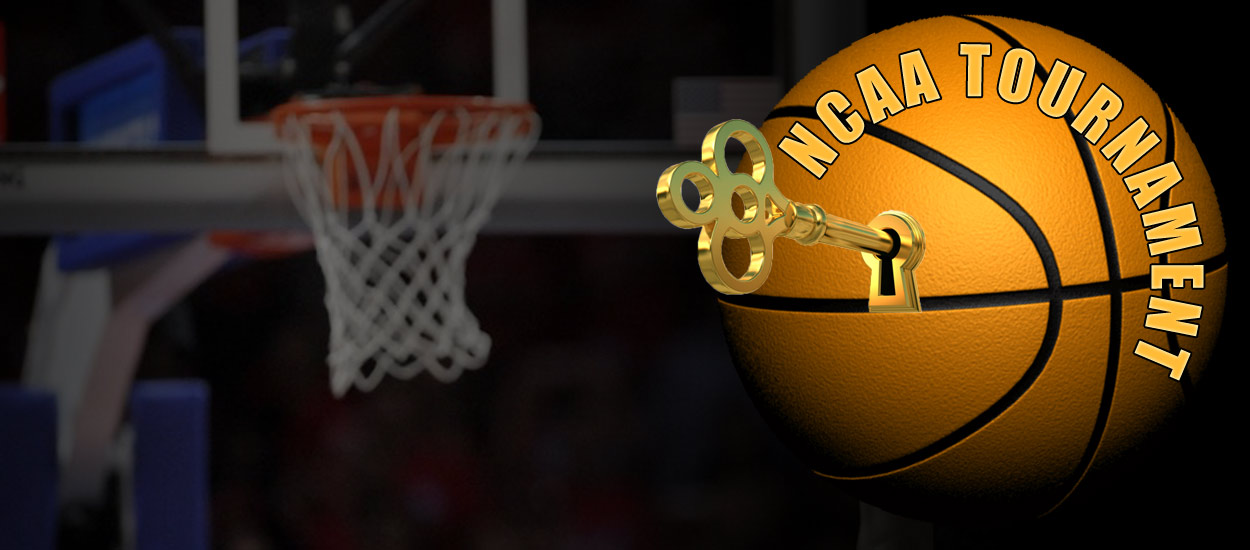Continuing our series following the NCAA Tournament betting tips and postseason primer, let’s look at some keys to NCAA Tournament success and statistical profiles of stronger teams.
Offense: With increased scoring in recent seasons, offense continues to get headlines and is imperative for success. In tournament play, you must be able to score and avoid long scoring droughts. But with the top teams playing in the NCAA Tournament, there are more teams capable on the defensive end of shutting down one scoring option. A review of the top shooting teams will assist you at tournament time. Stronger defensive teams often force longer possessions and give nothing away, forcing players to make more passes in search of quality shots. Thus, experience is a real plus along with quality point guard play and scoring balance, both from the perimeter and inside with multiple scoring options (think Gonzaga, Michigan State, Duke, Virginia, Tennessee).
The last two season, Villanova and North Carolina have benefited from the reduced shot clock using their more athletic teams and high-scoring and efficient offenses to win National Championships. North Carolina played another high-scoring and top efficient offense in the finals in Gonzaga. It’s apparent in today’s game that you have to be able to score more. Yet both Gonzaga last year and Villanova the prior year were eliminated before the Elite Eight as high-scoring efficient offensive teams. Each was knocked out by a stronger, efficient defensive team. Quality depth can be a factor, but teams will rely on their top players at crunch time. Recognize a team’s assist-to-turnover ratio. The ability to play in the half court with an efficient offense and balanced scoring options will separate teams, especially in the second half as some teams start to wear down. Thus, unselfish teams that value and take care of the basketball and give their teammates good looks will ultimately win out with productive shooting.
Bet on college basketball at one of these Elite-rated sportsbooks!
Defense: While scoring continues to get headlines and highlights, teams that play solid defense and minimize turnovers and second chance opportunities will win more games. Defensive dominators are your best bet. Recall No. 7 seed South Carolina rode a top-10 defensive efficiency team to the Final Four two years ago. Gonzaga was an elite offensive and defensive team that made the finals, but their two toughest and close wins were against strong defensive teams West Virginia and South Carolina before losing to North Carolina. Strong defensive teams are often very well coached, like Michigan again this year after the Wolverines made it to the NCAA Tournament finals last year. Yet recall Michigan had a miraculous 1-point win in the Round of 32 over another defensive dominator in Houston.
Discipline on defense and players willing to commit on that end of the court is a learned skill by coaches that demand it with constant energy and effort on defense. The type of defense a team plays may vary from game to game with man-to-man, zone or full court pressure. Superior defensive teams and those that have quality athletes and flexibility to adjust are your best bets (think Virginia, Texas Tech, Wisconsin, Michigan State, Kentucky, Michigan, Kansas State and Duke). After a full season of results, the overall body of work and numbers should tell the story. Yet note injuries or players that miss action, as a team like Duke has recently been without their star player and last year Texas Tech lost a key player and defender prior to playing eventual national champion Villanova. Key stats to analyze are defensive field goal percentage and turnovers forced, with overall points-per-game allowed also of note, especially versus quality teams. Review how teams performed against better competition, including those smaller conference teams and lesser known programs. Look at a team’s offensive tempo, and if a team has an efficient offense and still plays strong defense, you likely have a team worth plenty of support.
Rebounding: One of the most overlooked areas in evaluating teams is their ability to rebound the basketball. The key here is rebounding margin, which goes together with a team’s defensive field goal percentage (think Michigan State, Kentucky, North Carolina, Maryland, Houston). Teams that are physical, strong and athletic on the boards also create more fouls on the opponent and get to the free throw line more often. The top teams will always be strong in these areas, and the ability to control the boards, rebound relentlessly on offense and minimize second-chance points on defense will go a long way in determining whether a team advances or not.
Other stat profiles and parameters include scoring margin. These NCAA Tournament teams all had an average scoring margin of at least 11 points per game this season led by Gonzaga’s remarkable +24.9 points per game scoring margin. They were followed by: Virginia, Duke, Nevada, Houston, Texas Tech, Wofford, Michigan State, Tennessee, North Carolina, Buffalo, Murray State, Virginia Tech, Utah State, Kentucky, Michigan.
As you evaluate other statistical profiles and parameters, approach each match-up without over-reacting to the most recent result or conference tournament results. Match-ups are key, as is identifying potential value in a betting line and not getting stuck on media members comments or public perception. I encourage you to also look at assist-to-turnover ratio and net turnover margin. Taking care of the basketball and creating good shots with ball movement more than isolated one-on-one play will add to a team’s positive profile and winning ways. Often to produce profit.
Stick to some of these ‘Fairway Fundamentals’ and concepts and you’ll start to see the court more clearly and make more shots and layups when betting basketball at the sportsbooks.
You can bet on it.
FairwayJay is a leading national sports handicapper and is recognized as one of the sports industry's most insightful analysts. Read more great insights from Jay here and follow him on Twitter: @FairwayJay












































